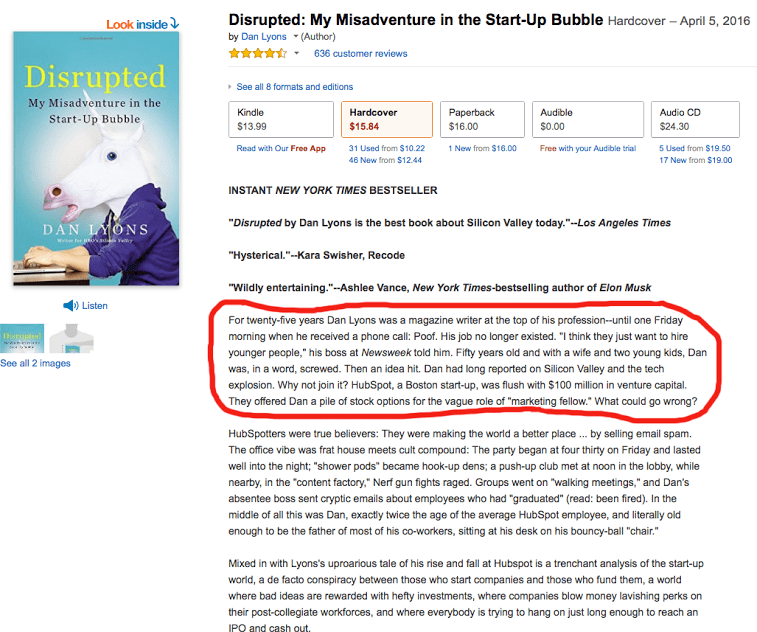By Jenny Pivor
Don’t Be a Bore! How a Logline can crystalize your marketing copy and help your writing too.
Have you ever been cornered by a bore at a party? You know the one that I mean: he goes on and on, telling every detail (did you ask?) about some uninteresting topic and you are trapped. I am cautious when asking an author what his book is about, since more often than I’d like, I’ve been captive to some lengthy monologues. I’ve learned to initially request a “brief description,” to prevent listening to 15 minutes of intricate plot twists and turns. When it looks like I should have packed a lunch, I try to interrupt saying, “What you need is a logline.”
What is a logline?
Remember those brief descriptions on Netflix that might persuade you to watch a movie you’ve never heard about? They are called loglines and you’ve probably been reading them for years, never thinking they might apply to your book. Authors can learn a lot from Hollywood. If you can create a perfect pitch, distilling the essence of your book into a couple of powerhouse sentences to tempt your readers, you have created a logline.
A logline does more than prevent you from being a bore at parties. It makes you distill the plot down to its bones, and you may understand for the very first time what you have written and what your book is actually about.
Here’s an example from Netflix from a movie that I recently watched:
Sing Street
In 1980’s Dublin, a teen whose family is falling apart transfers to a tough school where he forms a band to fit in and win a girl’s attention.
In this one sentence, you know where and when the movie takes place as well as a setup for the plot. It doesn’t say, “he transfers to a new school where he is bullied,” but sums it up with one word: tough. He transfers to a tough school. Word economy is a great discipline for any writer. I was intrigued enough by this logline to watch the film I’d never heard of, and can tell you that there are a LOT of other things that could have been said about the story line, but to engage an audience, they are unimportant.
Challenge yourself to create a logline for your book. Be a penny pincher with your words and make them count. I promise you that you will never be in no danger of boring anyone when you deliver it. You want people to ask for MORE, not make them want to run to the restroom to escape.
A logline can help your writing.
Once you have the essence of what you are writing, you can use it to streamline your book. If you know what is crucial to your storyline, it can become more obvious what is essential and what you can cut. Make it your manifesto, and the seed of your story: hold your book’s content to this standard of what is needed and what is not, and watch it shed unnecessary tangents that slow down your plot and weigh down your writing.
Your logline: the basis for powerful marketing copy
Now that you have written intriguing logline, you can expand it a bit for some effective marketing copy. One addition to the logline you might consider is the book’s takeaway. What might someone gain from reading it? A wild ride? A passionate romp? An insider’s understanding of another culture? A new idea that will help solve a problem?
Consider this example of how a logline is expanded into marketing copy in the description of the New York Times bestseller, Disrupted: My Misadventure in the Start-up Bubble, by Dan Lyons. The circled sentences below could be a standalone logline. It’s enticing, yes?

In summary, using a logline even before you write the book can bring you clarity. Those two or three sentences will be your loyal friend throughout the entire process, then give you an enticing elevator pitch for your book and the basis of some solid marketing copy to help it succeed, not to mention make you a better conversationalist at parties.
Jenny Pivor loves encouraging authors to reach their full potential by exploring their dreams via her hybrid publishing company, Merrimack Media. Through her own career as a designer and a writer, she provides strategy, branding and the tools that authorpreneurs need to succeed. Her technical know-how, acquired in over a decade of creating websites, has translated into applying new technologies to help authors both publish and promote themselves. She loves helping authors with their loglines, and developing a brand for their book.
Contact her at jenny@merrimackmedia.com and learn about PUBLI, a new product that uses not only uses Pressbooks, but holds your hand through the process and gives you a book cover and marketing strategy.




